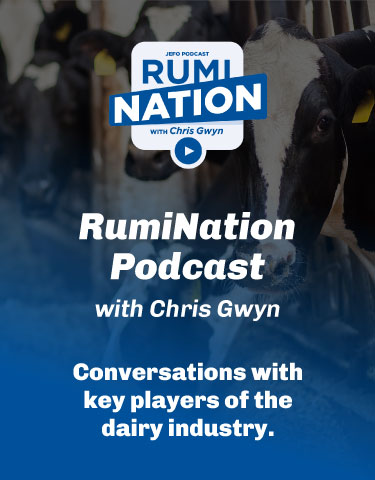Jefo’s precision nutrition solutions
Optimize cow health and performance during periods of stress
How Heat Stress affects dairy cows?
Dairy cows experience heat stress when their body temperature exceeds optimal metabolic activities threshold.
This happens when the total thermal load is greater than the heat dissipation capacity.
Ruminants face two major sources of heat: the first is generated by the fermentation of feed in the rumen, and the second by metabolic functions.
Would you like more tips?
Leave us your email and we’ll get back to you!
The degree of thermal stress experienced by dairy cows can be measured with the
Temperature-Humidity Index (THI).
The THI threshold for high producing dairy cows is 68. Over this number, heat stress is severe enough to have a negative impact on your cows’ performance.

Browse through the stages of stress.
Stress
Stress
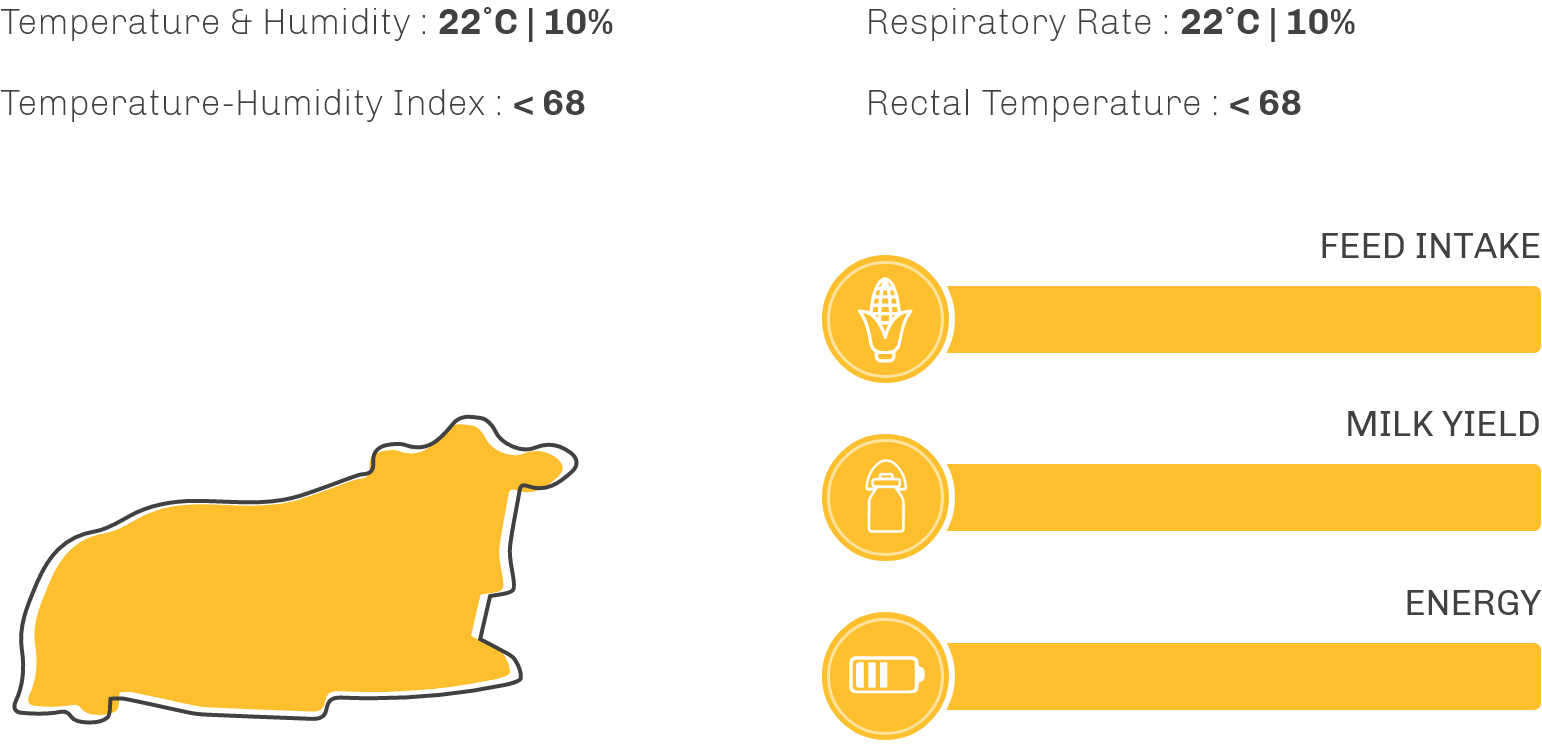
Stress
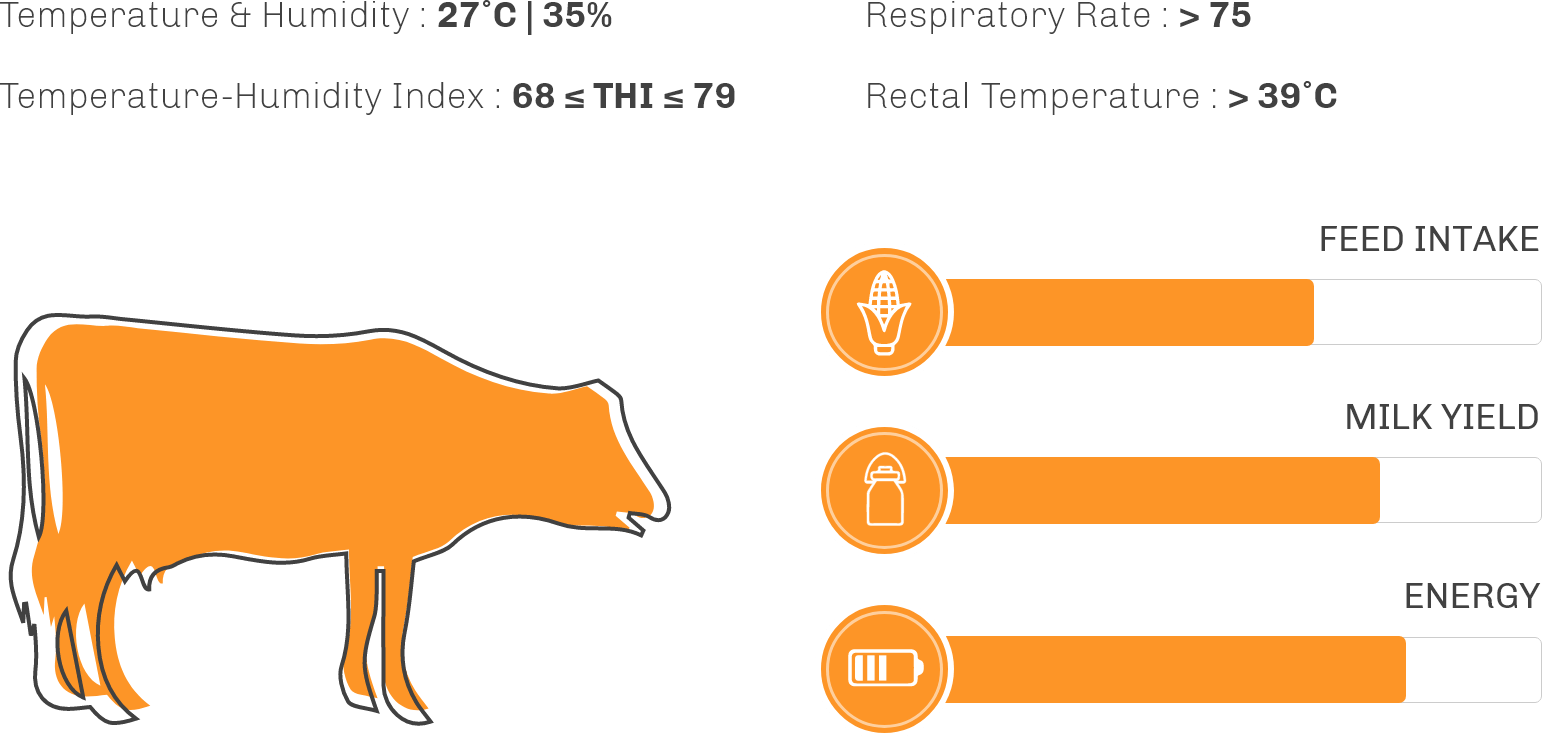
Stress
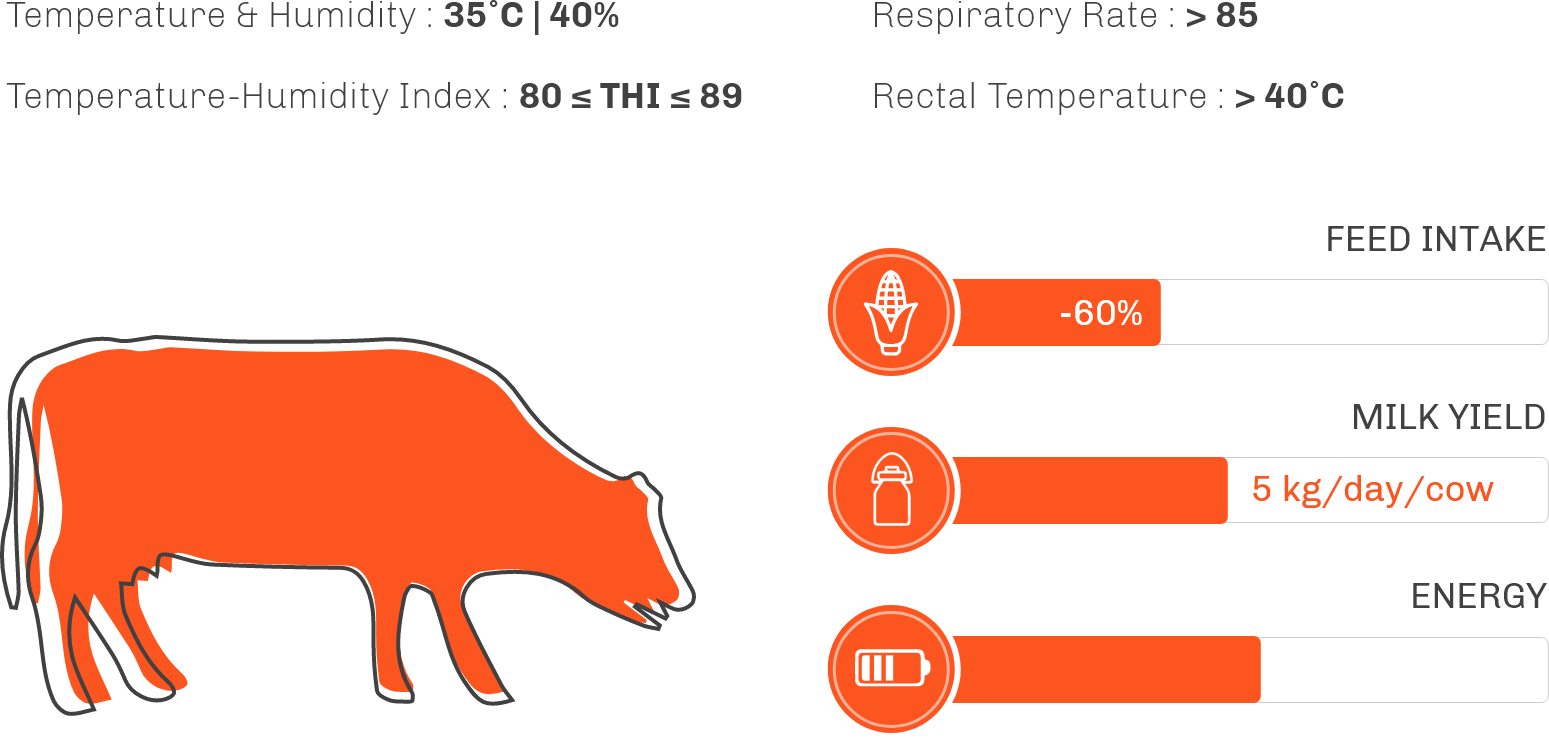
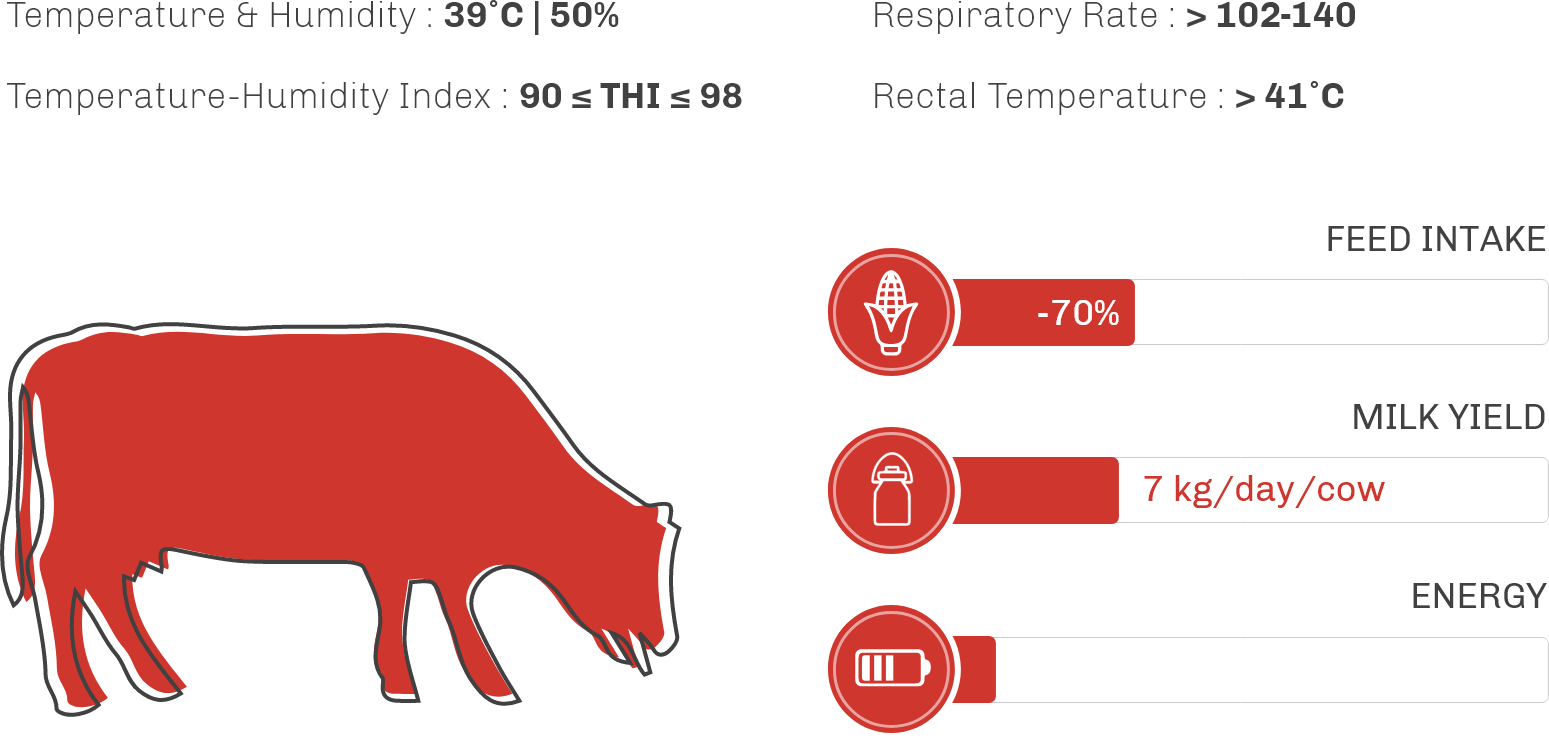
Stress
Stress
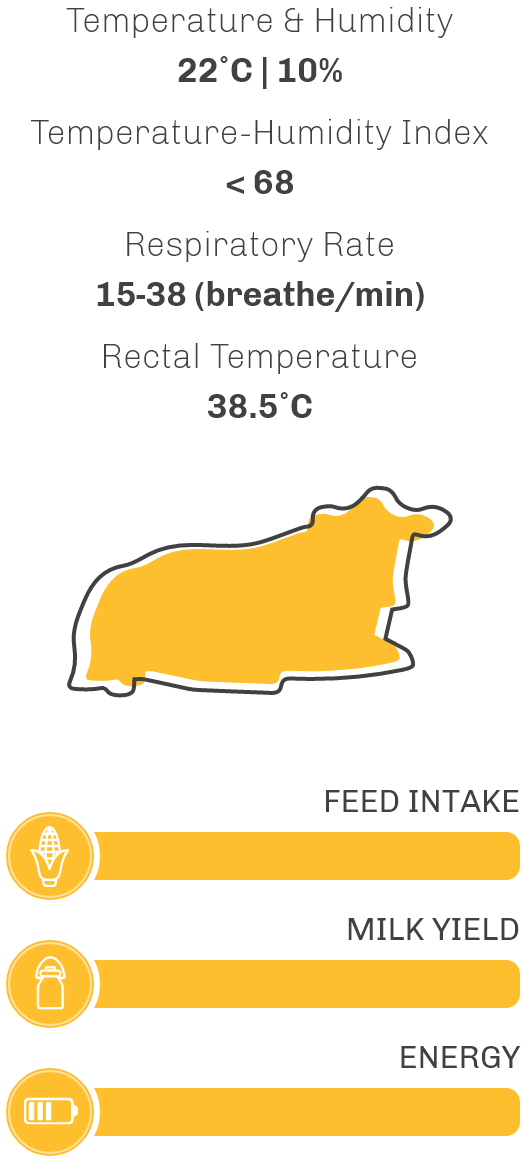
Stress

Stress
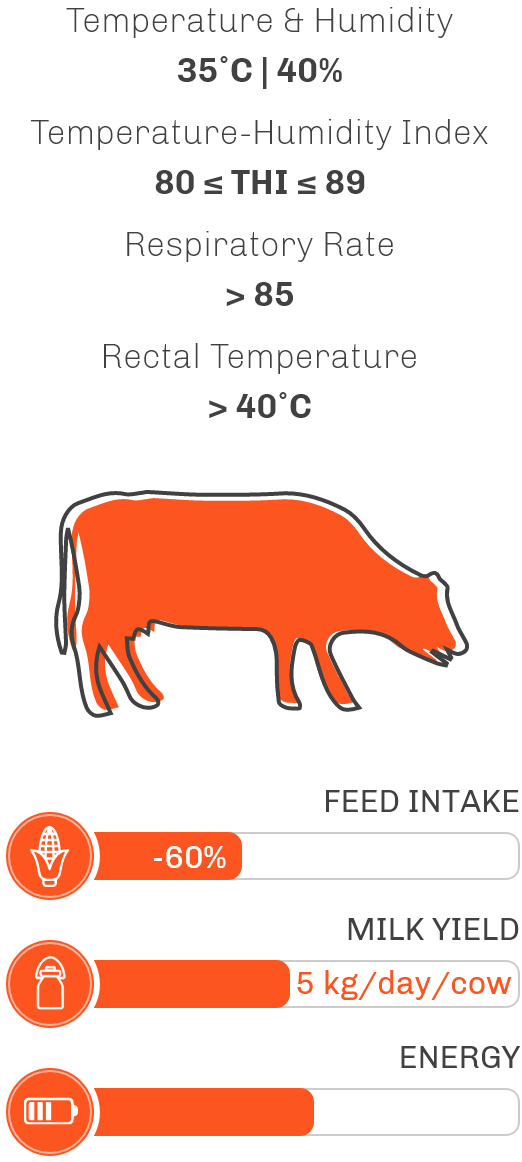
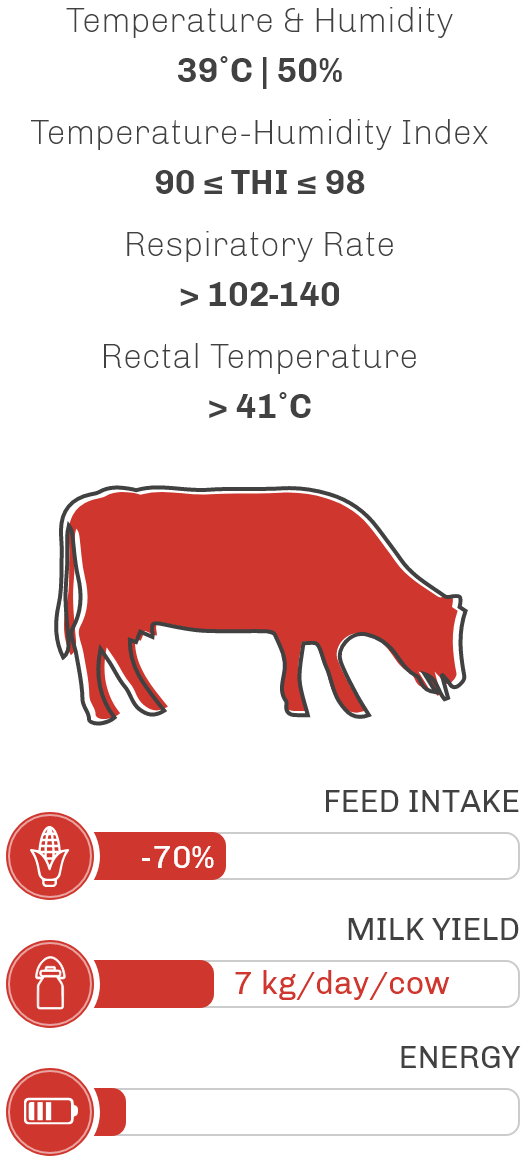
A systemic approach and holistic vision of the farm is the solution
Cows need not only to keep their dry matter intake in order to keep feeding their metabolic machine, but also it should be feed with the right propotion of essential nutrientes that will guaranteed the less energy cost and the lowest metabolic heat production to keep a high performance.
During heat stress periods, we suggest a whole farm approach that include three principal strategies:
1. Management Strategies
– Cooling systems
– Roof insulation
– Fans and/or misters
– Increased drinking water supply
– Avoid overcrowding
2. Feeding Strategies
– Deliver feed during the coolest time of day
– Increase nutrient density of ration
– Feed high quality forages
– Increase feeding frequency to avoid any heating of the ration.
– Avoid overcrowding
3. Precision Nutrition Strategies
B vitamins are essential coenzymes that have specific functions to support enzymes responsible for energy (glucose) and protein metabolism of dairy cows, immune response, follicular development and early embryonic survival.
Benefits at each stage!
Transition
Improved Dry
Matter Intake (DMI)
Peak Lactation
Increased milk yield
and composition
+ 0.22 lb butterfat
+ 0.35 lb milk protein
Mid Lactation
Increase 20% conception rate
Late Lactation
Optimized milk yield and composition
Far-off
Decrease 33% mastitis risk
Decrease 55% ketosis risk
The objective for utilizing the blend of B vitamins products designed for close-ups & fresh cows was to see an increase in dry matter intakes and less sickness. The impact was pretty immediate, and we saw increased early lactation milk, less metritis, lower milk fevers and less DA’s. When you see results like this, you have more confidence in continuing their use and these products will be an important part of our rations moving forward.
Brian Fiscalini – Owner/General Manager
Fiscalini Farms-Modesto, California

